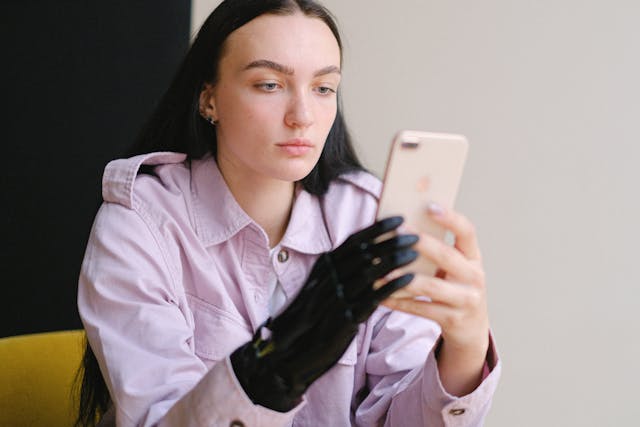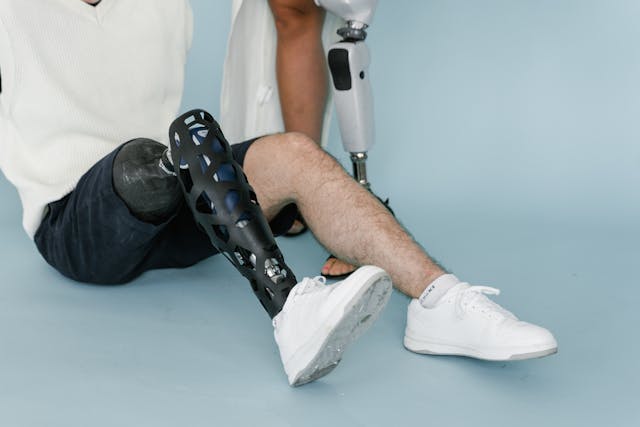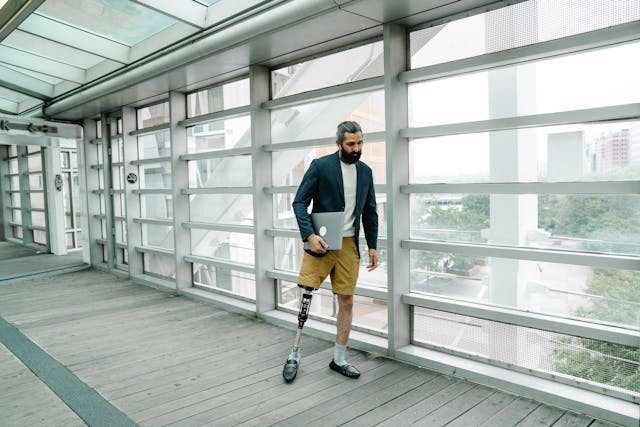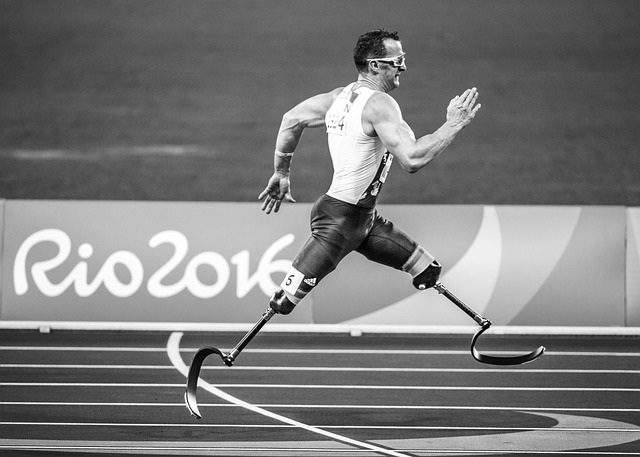When a child is born with a limb difference, it changes everything. Life takes a turn that no one plans for, and emotions often become too big to name. Families step into a world they never imagined they’d be part of — filled with challenges, decisions, but also moments of deep love and strength. This journey is not just about adapting physically. It’s about healing emotionally, learning to hope again, and finding pride in new beginnings.
The First Moment of Awareness
The moment a parent first sees their child born without a limb is powerful. For some, it happens after a scan during pregnancy. For others, it’s a surprise during birth. In both cases, the feeling is heavy. Time seems to slow down as they try to understand what it all means. It’s not always sadness — sometimes it’s confusion, fear, or simply silence.
In those first few moments, many thoughts run through a parent’s mind. They may ask, “Why did this happen?” or “Did I do something wrong?” These thoughts are natural, but they can be painful. Guilt may creep in, even if doctors say it wasn’t anyone’s fault. This emotional weight needs space. It needs kindness, not just answers.
The way people around the family respond matters. A soft word from a doctor. A calm hand on the shoulder. These small things shape how the family starts to process what’s happened. Early reassurance that their child is still perfect in every way makes a world of difference.
Adjusting in the First Few Weeks

Once the child is born, families step into a different kind of world. It’s not just hospital visits or medical terms — it’s the emotional swirl that comes when everything familiar feels far away. Parents now live with a mix of deep love and quiet worry.
During these weeks, fear becomes a frequent visitor. Families think about their child’s future, even before the baby opens their eyes. They wonder if their child will walk, play, make friends, or feel different from others. These fears are real and deserve to be heard, not pushed aside.
Yet amid all these questions, something powerful starts to grow — a love that becomes fierce and protective. It helps parents face doctors, ask questions, and begin looking for answers. They may feel overwhelmed, but their hearts become focused on one goal: making life beautiful for their child.
Private Grief and Silent Questions
Grief doesn’t always come from death. Sometimes, it comes from letting go of the future you imagined. For many parents, this kind of grief is quiet. They don’t talk about it much. But it’s there, in the silent moments when the room goes still and emotions rush in.
This grief can look like sadness, but it’s also full of love. Parents grieve the image they had in their minds — of holding two tiny hands, of watching their child run with both legs. They miss something that never was, and that’s not easy to explain.
With time, this grief changes. It softens. It makes room for joy. Parents begin to see their child not through the lens of “missing” something, but through the light of everything they are. That’s when healing truly begins — when pride replaces pain.
Facing the Reactions of the World

Once the family steps out into the world, they face a new layer of emotion. People notice differences. Some ask questions. Others stare without meaning to. These moments, though small, leave lasting marks on parents’ hearts.
It can feel exhausting having to explain the same thing again and again. Parents may find themselves shielding their child or avoiding certain places. This is not because they are ashamed — it’s because they are protecting something very precious.
But over time, many parents find their voice. They learn how to explain their child’s condition with grace. They teach others how to see the child, not just the limb difference. At Robobionics, we help families build that confidence. We know strength comes not just from technology, but from feeling ready to face the world.
Searching for Help and Hope
Every family reaches a point where they begin to look for solutions. They want their child to have the best chance at an independent life. That journey often begins with research, phone calls, and appointments. It’s the beginning of a new kind of hope.
But the search can also feel like a maze. There are so many options. What’s the best prosthetic? What’s the right age to start? Will it be too heavy? Too expensive? Parents want to do everything right, and that pressure can be overwhelming.
That’s why at Robobionics, we take a different approach. We invite families to try Grippy™ through a free demo — not just to see how it works, but to feel the possibilities. Because sometimes, seeing your child hold something for the first time brings more answers than any brochure ever could.
Creating a New Kind of Normal

As time passes, families start creating new routines. They find joy again. The limb difference is still there, but it becomes part of daily life — not the center of it. That shift is gentle, but it changes everything.
Parents learn how to adapt daily tasks. Children show clever ways of doing things differently. They draw, eat, dress, and play in ways that suit them. Every little moment becomes a reminder that life doesn’t have to be typical to be beautiful.
This new normal is made up of strong mornings, laughter at dinner, and soft bedtime routines. It’s not about forgetting the difference. It’s about learning to live fully with it. And it’s at this stage that many families finally begin to breathe a little easier.
Watching the Child Blossom
One of the greatest joys is watching a child grow into themselves. They develop their own voice, their own dreams, and their own way of doing things. And they often surprise their parents with how far they go.
There are still challenges, of course. A child may struggle with self-image or feel different from others at times. But the emotional tools parents have developed over the years now become gifts they can pass on to their child.
Robobionics stays with families during these years. Whether your child is five or fifteen, we offer services that grow with them — including maintenance, training, and upgraded solutions. Because the journey doesn’t end after the first fit. It continues, and so do we.
Finding Strength in Community

Even as the family becomes stronger, the need for community remains. Talking to others who’ve walked the same path brings a kind of comfort that nothing else can. It turns isolation into connection.
Parents who once felt alone now become the ones offering support. They share stories, offer tips, and remind others that things do get better. And in helping others, they heal even more.
At Robobionics, we host events and create safe spaces for these connections to grow. Our goal is not just to fit a prosthetic — it’s to build a family around every family we serve. You are not alone, and you never will be.
Living with Meaning and Confidence
Over time, what once felt like a heavy burden often becomes a badge of pride. Families don’t just adapt — they thrive. They find meaning in the journey and strength in the story they’ve lived.
Children with limb differences often grow into some of the most empathetic, creative, and brave people you’ll ever meet. And behind them stand parents who never gave up — who found strength they didn’t know they had.
If you’re just starting this journey, know that there is hope. Know that others have walked this path before you and have come out stronger. And know that Robobionics is here, not just with devices, but with care, compassion, and a promise to walk beside you.
Preparing for School and Social Life

As children with congenital limb differences grow older, their world starts to expand beyond home. School becomes a big part of their life, and with it come new joys and challenges — both for the child and the family. This stage brings up fresh emotions, new fears, and new opportunities for growth.
The first day of school can feel both exciting and nerve-wracking. Parents wonder how classmates will react. Will their child be accepted? Will they be asked uncomfortable questions? These concerns are very real, and even the strongest families feel a little anxious. Preparing the child ahead of time, practicing how to answer questions, and having open conversations about feelings can go a long way in helping them feel ready.
Social life is just as important as schoolwork. Friends, games, and parties all shape a child’s self-esteem. If a child feels left out or treated differently, it can affect how they see themselves. But with the right support, children often find their own way of connecting and belonging. They may even become role models — showing others what strength, courage, and kindness really look like.
Rebuilding Confidence After Setbacks
Every family, no matter how strong, goes through hard moments. Sometimes a device breaks. Sometimes a child refuses to wear their prosthetic. Sometimes emotions run high, and both parents and children feel frustrated or tired. These setbacks are normal, and they are part of the journey.
There are times when children just want to feel like everyone else. They may ask, “Why me?” or want to stop using their prosthetic altogether. Instead of seeing this as failure, it’s important to see it as a moment of reflection. It’s a chance to listen, to ask questions, and to understand what’s really going on underneath the surface.
Rebuilding confidence takes time. It can be as simple as finding a new hobby, meeting another child with a similar experience, or just taking a break and trying again later. At Robobionics, we support families during these moments, offering repairs, upgrades, and motivation to keep going. You’re never alone — even when the path gets bumpy.
Celebrating Small Wins, Always

In the world of congenital limb differences, every milestone is meaningful. Whether it’s tying shoelaces, riding a bike, or writing with a prosthetic for the first time — these moments carry more weight than most people realize. They are not just tasks. They are signs of growth, courage, and persistence.
Celebrating small wins helps children build self-esteem. When they see their efforts being noticed, they begin to believe in their abilities. These celebrations don’t have to be big. A proud smile, a word of encouragement, or a joyful clap can light up a child’s face and create lasting memories.
Families also benefit from recognizing how far they’ve come. Looking back and remembering those early days — the fear, the confusion, the doubts — and then seeing how much progress has been made, helps parents feel strong too. These wins are shared victories. And at Robobionics, we celebrate them with you, every single step of the way.
Conclusion: A Journey Built on Love, Strength, and Hope
The emotional journey of families with congenital amputees is unlike any other. It begins with surprise, travels through uncertainty, and leads to a place of strength that is often deeper than words can express. There are days of doubt, but there are also days filled with courage, laughter, and pride. And through every stage — from the quiet early moments to the loud celebrations of growth — one thing remains constant: love.
This journey doesn’t follow a straight path. It twists, turns, and sometimes circles back. But each step forward is meaningful. Every moment — big or small — builds a future where the child feels seen, supported, and free to be themselves. And the parents, once overwhelmed by unknowns, become the strongest advocates, protectors, and cheerleaders anyone could ask for.
At Robobionics, we understand that our role is not just to offer a prosthetic. It’s to walk beside families. It’s to lift them up when things feel heavy, to celebrate when milestones are reached, and to offer hope even on the hardest days. If you are on this journey, or just beginning it, know this: you are not alone. There is a community, a future, and a partner here waiting to walk it with you. Book a free demo of Grippy™ today, and let’s take the next step together.



